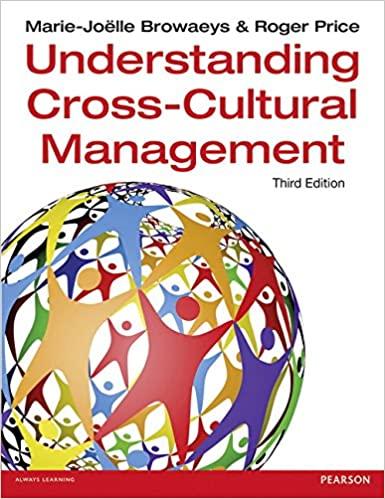When the chief executives of Renault-Nissan and Daimler kicked off a strategic tie-up at a picture-perfect signing
Question:
When the chief executives of Renault-Nissan and Daimler kicked off a strategic tie-up at a picture-perfect signing ceremony in Brussels on Wednesday, both quoted philosophers from their partner’s respective countries.
It was meant to demonstrate the Franco-German corporate bridge their partnership was building, but the quotations instead suggested big differences in how Carlos Ghosn and Dieter Zetsche viewed it – and pointed to potential future friction between their companies.
Renault-Nissan’s Mr Ghosn spoke about creating a ‘technological powerhouse’, and quoted Hegel:
‘Nothing great has ever been accomplished without passion’, he declared. Daimler’s Mr Zetsche, who chose to emphasise the tie-up’s practical side and the hard work it had taken to conclude, cited Voltaire with ‘Work is the father of pleasure’.
Mr Ghosn has long been an advocate of crossshare holdings in an industry facing growing pressure to be present in every market and vehicle segment. He had long spoken of adding a third partner to the eleven-year-old Renault-Nissan alliance.
But Daimler was burnt badly in past misalliances with three other mass-market carmakers:
America’s Chrysler, Japan’s Mitsubishi and South Korea’s Hyundai. Max Warburton, analyst with Sanford Bernstein, said: ‘Daimler is clearly still scared by the Chrysler disaster, so it will see attractions in a much looser co-operation.’
As Mr Ghosn acknowledged, the ‘strategic partnership’
announced on Wednesday falls short of the cross-shareholding alliance between Renault and Nissan. However, it goes well beyond the smaller, time-limited collaborations on cars, engines or plants favoured by competing carmakers.
The talks began in 2009 when Daimler approached Renault about working together on its Smart small-car brand and smaller four-cylinder engines.
Daimler had said it was talking to other potential partners on small cars, but Renault seems to have been its best option.
The two companies will build three Smart and Renault Twingo models in France and Slovenia together, and co-operate on small engines, in addition to joining forces on vans. But analysts said that the partnership – while helping to solve Daimler’s problem in small cars – would yield more obvious benefits for Renault and Nissan, including by giving the Japanese carmaker’s Infiniti brand access to Mercedes’ expertise in engines.
To make the company share knowledge with Renault and Nissan, Mr Zetsche will have to push through a big cultural shift in the lower ranks of the engineering-driven, technology-loving Stuttgart company.
Paul Newton, analyst at IHS Global Insight, said:
‘The opportunities for Daimler are many and obvious, but Daimler’s engineers and corporate culture may have to undergo a radical change for this to truly succeed.’
Speaking in his German philosophical vein on Wednesday, Mr Ghosn sought to dismiss scepticism about the partnership by quoting Nietzsche’s remark that what does not kill you makes you stronger.
When Renault and Nissan started their alliance in 1999, he said, some thought the alliance ‘would probably kill both companies’.
‘Here we are’, he said. ‘We are not dead, and we are much stronger than we were 11 years ago.’
Questions
1. Referring to the text, explain what the author means by the phrase ‘cultural chasm’ as used in the title.
2. How can you explain the fact that the Renault and Nissan alliance is still alive? What factors have helped to make the alliance stronger?
Step by Step Answer:

Understanding Cross Cultural Management
ISBN: 9781292015897
3rd Edition
Authors: Marie Joelle Browaeys, Roger Price





